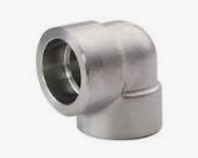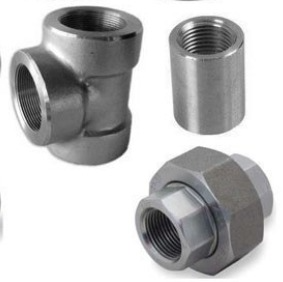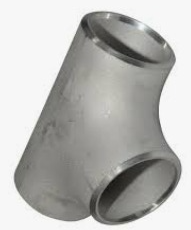In the realm of industrial components, the significance of forged fittings cannot be overstated. This comprehensive guide aims to provide a thorough understanding of forged fittings. It delves into the standards that govern them. It also elucidates the distinctions between forged and wrought fittings.
What is the Standard for Forged Fittings?
Defining Precision: The Essence of Forged Fittings
Forged fittings represent a pinnacle of precision in the industrial landscape. These fittings are crafted through a process of controlled deformation. They boast exceptional strength and durability. To understand the standards for forged fittings, one must appreciate the meticulous manufacturing processes involved.
Industry Standards: Ensuring Quality and Reliability
In the world of forged fittings, adherence to standards is paramount. Organizations such as the American Society of Mechanical Engineers (ASME) and the International Organization for Standardization (ISO) have established rigorous guidelines. The ASME B16.11 standard outlines the requirements for forged steel fittings. It ensures uniformity in dimensions, materials, and testing procedures.
Types of Forged Fittings
Socket Weld Fittings
These fittings involve a recessed area. A pipe is inserted and welded, creating a robust connection. It is ideal for applications with high pressure and temperature.
Threaded Fittings
Threaded fittings, on the other hand, rely on threads to create a secure joint. This versatility makes them suitable for a range of industries, offering ease of installation.
Butt Weld Fittings
Butt weld fittings, known for their welded joints, provide a seamless connection. They are favored in applications where strength and integrity are paramount.
Materials in Forged Fittings
Carbon Steel Forged Fittings
Forged fittings made from carbon steel offer exceptional strength and durability. Their robust nature makes them suitable for heavy-duty applications.
Stainless Steel Forged Fittings
Stainless steel forged fittings boast corrosion resistance. They are ideal for environments where exposure to moisture and corrosive elements is a concern.
Alloy Steel Forged Fittings
Forged fittings crafted from alloy steel bring together the best of both worlds. They combine strength, corrosion resistance, and enhanced temperature tolerance.
Forged Fittings Standards
Compliance with these standards isn’t merely a checkbox exercise; it’s a commitment to quality. Adherence ensures that forged fittings meet rigorous criteria. It guarantees performance and reliability in diverse applications.
ASME B16.11 Standard
The ASME B16.11 standard sets the bar for forged fittings. It delineates the dimensions, tolerances, and marking for socket-welding and threaded forged fittings. This ensures uniformity in design and manufacturing.
MSS-SP-83 Standard
MSS-SP-83 complements ASME standards, specifically focusing on threaded unions. Adhering to this standard ensures precision in threading. This contributes to the overall reliability of the connection.
“➡️ Quick Release Couplings: Unlocking Efficiency And Convenience ⬅️”
What Sets Forged Fittings Apart? Forged vs. Wrought Fittings
Chemical Composition and Grain Structure
Forged and wrought fittings differ mainly in their chemical composition and grain structure. Forged fittings are subjected to high-pressure processes. They exhibit a refined grain structure that contributes to enhanced mechanical properties. Wrought fittings are shaped through low-temperature processes. This results in a coarser grain structure.
Strength and Durability
The forging process imparts superior strength to fittings. This makes them ideal for applications where robustness is non-negotiable. Forged fittings excel in high-pressure environments. They offer a durability that surpasses wrought counterparts.
Precision and Tolerance
Forged fittings are synonymous with precision. The controlled deformation process ensures tight tolerances, minimizing variations in dimensions. This precision is critical in applications where seamless compatibility and interchangeability are imperative.
Choosing Excellence: Selecting the Right Forged Fittings
Factors to Consider:
Application-Specific Requirements
Understanding the specific demands of your industrial application is paramount. Forged fittings have superior strength and are well-suited for high-pressure systems. In contrast, wrought fittings may suffice in less demanding environments.
Material Compatibility
Consider the medium flowing through the fittings. Ensure compatibility with the chosen material. Forged fittings are available in various materials. These include carbon steel, stainless steel, and alloy steel. They offer a versatile range to meet diverse needs.
Compliance with Standards
Prioritize fittings that comply with industry standards such as ASME B16.11 or ISO 9001. This ensures not only the quality of the fittings but also compatibility with existing systems.
“➡️ SAE Flanges: Decoding The Standards For Seamless Connectivity ⬅️”
Installation and Maintenance Best Practices
Proper Installation Techniques
Installation is a critical phase in the life of forged fittings. It is essential to follow proper techniques. This includes using correct torque specifications and sealing methods. Doing so is necessary for establishing leak-free connections.
Routine Maintenance Guidelines
Regular maintenance prolongs the life of forged fittings. Periodic inspections and prompt repairs contribute to the overall reliability of the piping system. Checking for signs of wear or corrosion helps, too.
Conclusion
Forged fittings are precise, strong, and adhere to strict standards. It is crucial to understand the differences between forged and wrought fittings. This helps make informed decisions in industrial applications.
Post time: Dec-15-2023




